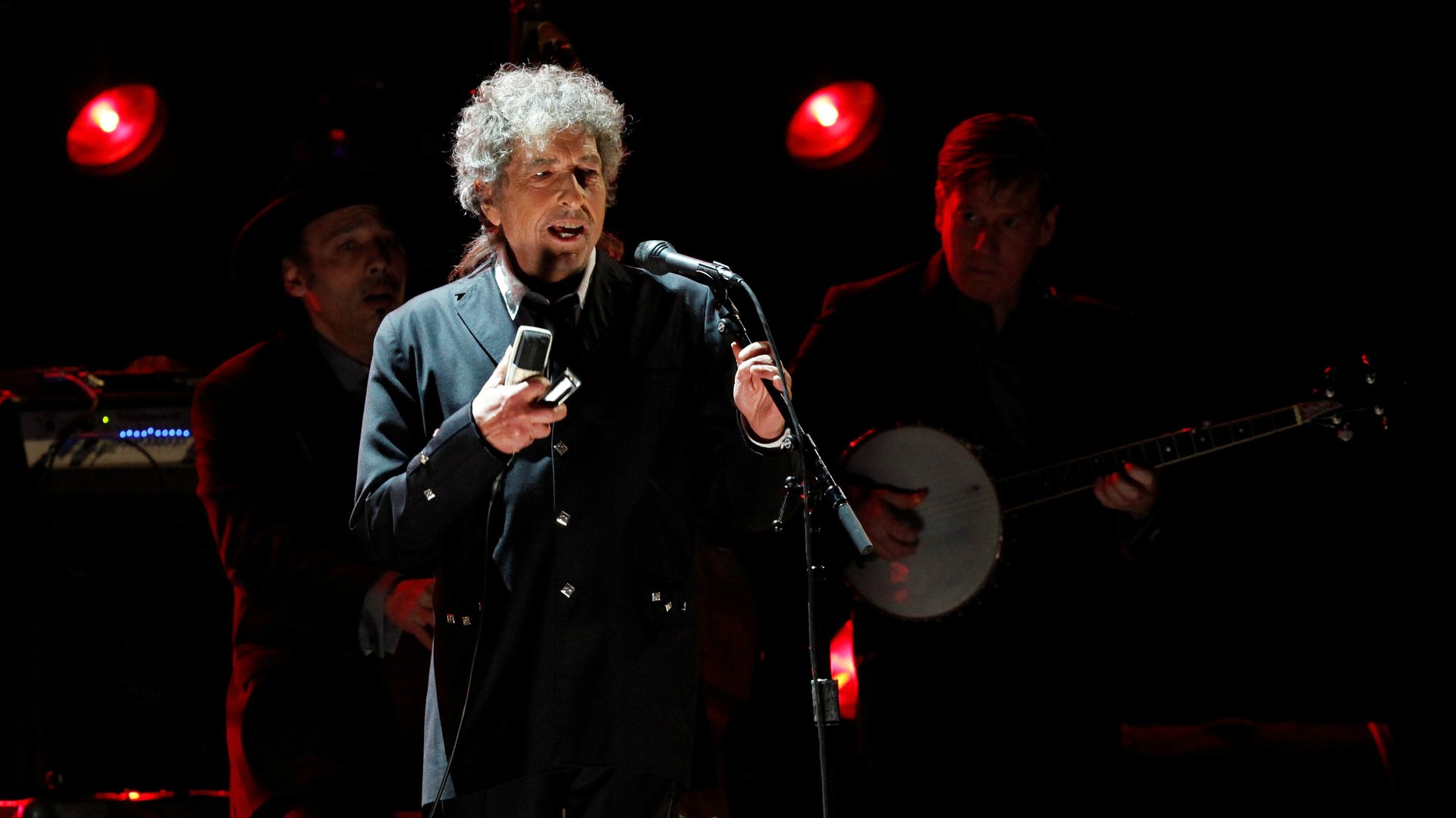Bob Dylan breaks his silence
The Swedish Academy stunned the world when it awarded folk singer Bob Dylan the Nobel Prize in Literature two weeks ago. Dylan, 75, became one of the first musicians ever to be awarded the prize, and the first American in more than 20 years to have the honor bestowed on him. A member of the academy lauded him for consistently “reinventing himself” over the span of his career.


The Swedish Academy stunned the world when it awarded folk singer Bob Dylan the Nobel Prize in Literature two weeks ago. Dylan, 75, became one of the first musicians ever to be awarded the prize, and the first American in more than 20 years to have the honor bestowed on him. A member of the academy lauded him for consistently “reinventing himself” over the span of his career.
The decision to give the prize to the Blowin’ in the Wind singer garnered appreciation in some corners, and sparked upset in others. But both camps were aggravated—if not surprised—by Dylan’s deafening silence about it. After efforts to make contact with Dylan failed, the Academy called his non-response “impolite and arrogant.”
The New York Times speculated that Dylan was channeling philosopher Jean-Paul Sartre, who a half-century ago rejected his Nobel Prize in Literature, insisting that any self-respecting writer must ”refuse to allow himself to be transformed into an institution, even if this occurs under the most honorable circumstances.”
The Minnesota-born Dylan (given name Robert Zimmerman) is admired for protest songs including “A Hard Rain’s a-Gonna Fall” and “Chimes of Freedom,” and the Times concluded that his silence “has been a wonderful demonstration of what real artistic and philosophical freedom looks like.”
Yet Dylan never ceases to surprise. Yesterday, while on a tour to promote a visual art exhibition in London, he spoke to veteran entertainment journalist Edna Gundersen at The Telegraph. When asked if he planned to attend the Nobel ceremony in Sweden in December, Dylan told her coyly, “Absolutely. If it’s at all possible.”
He shared with her that receiving the award was “amazing, incredible. Whoever dreams about something like that?” and gave credence to the Swedish Academy by acknowledging that some songs “definitely are Homeric in value.”
But still, he kept his distance, and said it’s up to others to interpret his lyrics: “The academics, they ought to know. I’m not really qualified. I don’t have any opinion.”
The Academy went out on a limb to select Dylan, and his mysterious response, in a roundabout way—through the media frenzy, and heightened speculation around his silence—affirmed all of their reasons for selecting him.